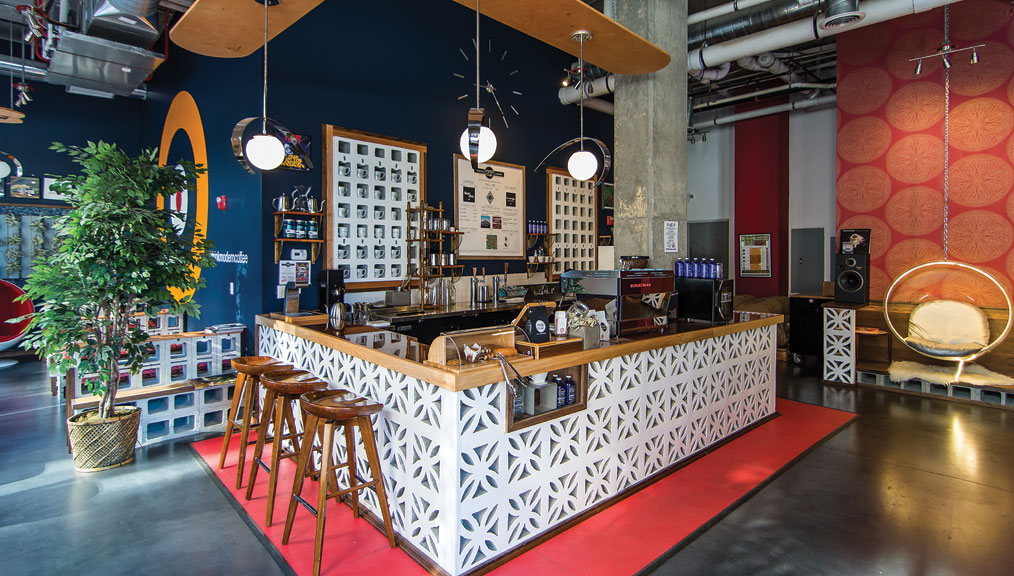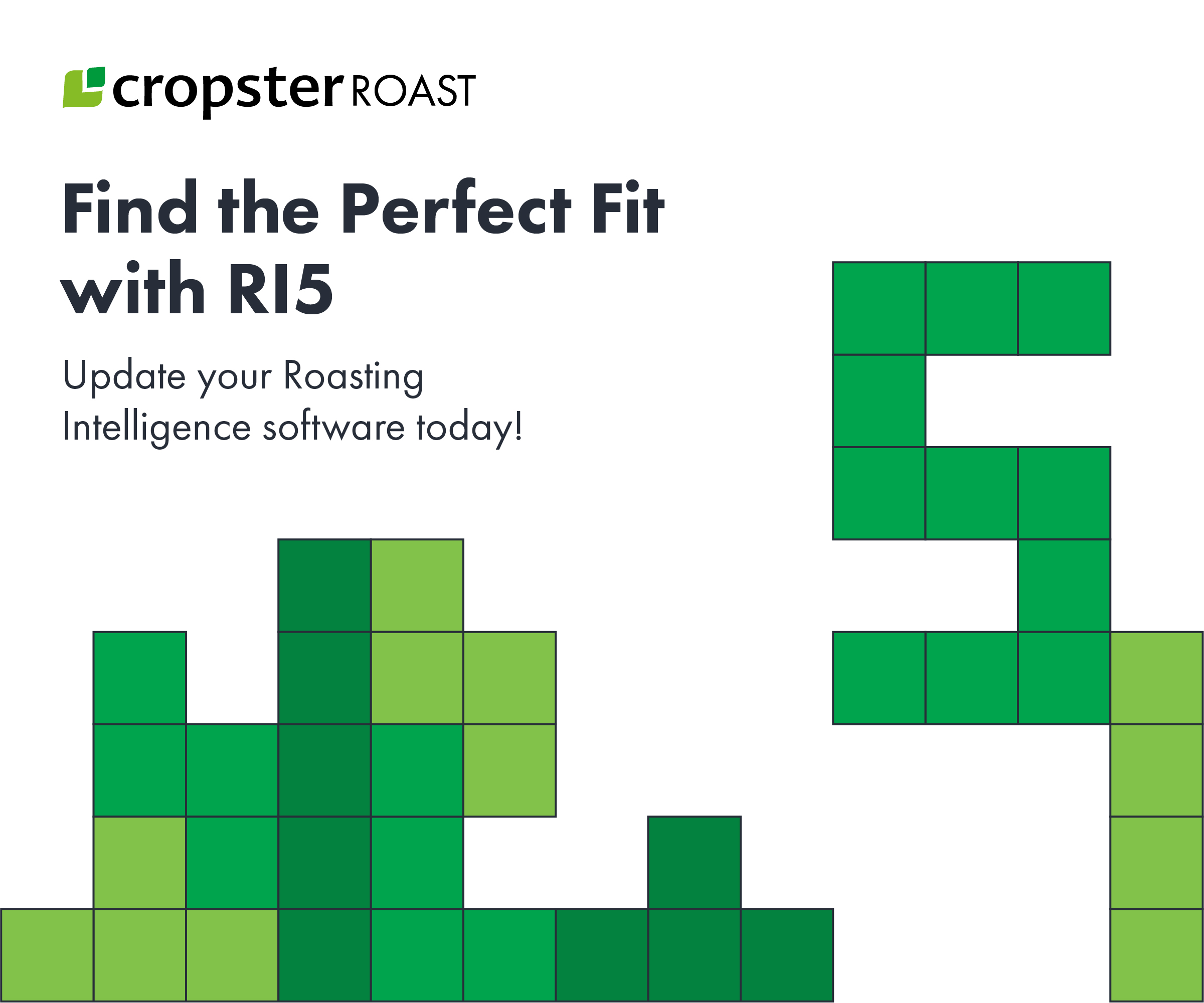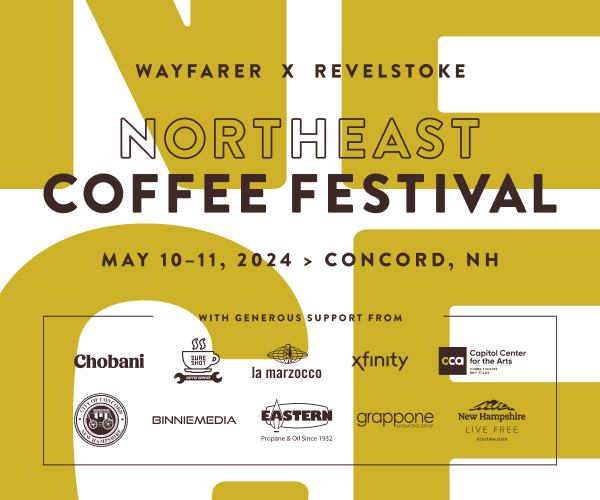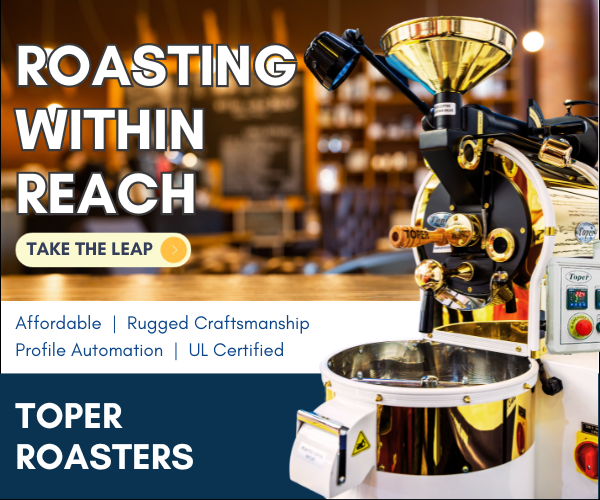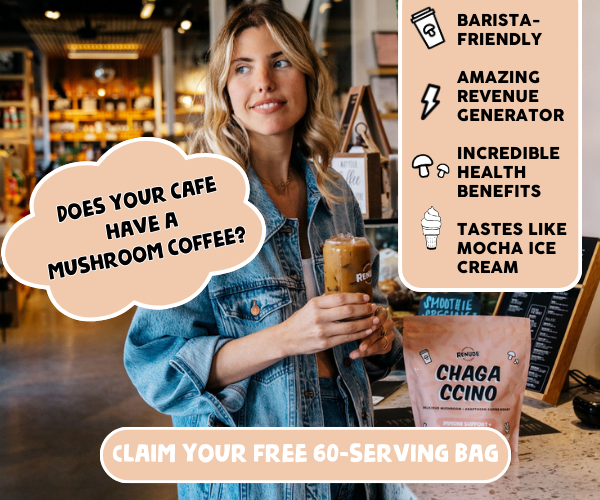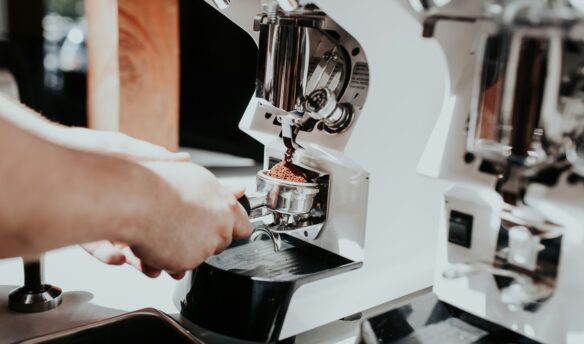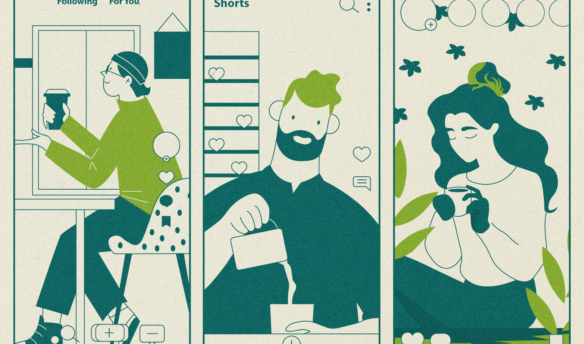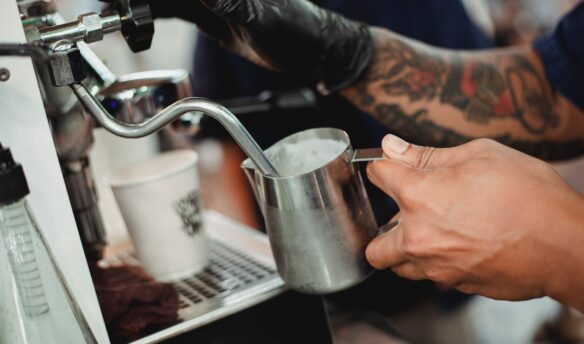This post is part two in a series about how Modcup Coffee Co. launched from a roving coffee cart.
[M]odcup Coffee Co.’s first marketing campaign was driven by the force of a simple tagline: “99 percent of coffee served is stale. We are the one percent.” It was direct, to the point, and immediately let any consumer or potential wholesale customer know that we were different.
Being part of the one percent of coffee companies serving freshly roasted coffee became a way of attracting other businesses to join that movement and showcase coffee within its true window of freshness. The tagline beckoned, “Become part of the one percent and help us grow it to two percent.” It became an inclusive message that welcomed consumers and wholesale partners.
Branding is all about an easily understood message that distinguishes you and your partners from the competition. Our philosophy was simple and our requirements from partners who sold our coffee were also simple.
Our first mobile café was a basic cart with everything we needed to sell the concept of specialty coffee to an audience that was brand new to the idea. Our first roastery operated along the exact same lines. Tucked away on Jefferson Avenue in Jersey City Heights, New Jersey, the original Modcup roastery was a small converted garage space that previously manufactured and warehoused mozzarella, a New Jersey staple.
Looking to break the Jersey tradition of darkly roasted coffee, we utilized the space to set up a roasting operation that started with an Ambex YM-2. We very quickly outgrew and replaced it with a ten-kilogram roaster from the same manufacturer, opening the door for us to roast for customers outside our own café.
Out on the streets, working the cart, we invited anyone interested to visit our garage roastery for an interactive class. During these weekend courses, we shared what it meant to be part of the one percent: be aware of roast dates, not expiration dates, and treat your coffee like the perishable product it is.
We also developed a seminar series that distinguished commercial from specialty coffee, explained methods for removing the fruit of the coffee cherry to get to the seeds, and detailed how coffee-cherry processing dramatically impacts the flavor profile of the brewed cup. We engaged people in the various brewing methods by inviting them to brew with us—fourth-wave coffee, as we called it.
Our company mantra centered on the idea that coffee’s complexity can only be showcased when served within its true window of freshness, and that coffee is first and foremost a fruit; so, we focused on purchasing super-high-quality green coffee that was naturally processed. We felt there was no better way to show modern coffee than with one that actually tasted like fruit. Though we also sold more classic and familiar offerings, using naturals was the ultimate way to demonstrate coffee’s flavor range, and it became a great way to get customers to join us in the one percent.
In a wholesale coffee market dominated by large brands with a lot of capital, creative collaborations became the key to developing relationships and creating products to break our brand out from only supplying roasted coffee. Our café concept was based on our ability to be mobile, and we applied the same philosophy to the wholesale arm of our business. We offered our seminars and interactive brewing classes to major companies as team-building exercises, hoping that down the line, they might buy our roasted coffee too—double win!
We have worked in this capacity with the PGA, the Hyatt Hotel Group, Pinterest, Facebook, Vice, and Google. Being mobile, adaptable, and having a clear message combined with a great product was critical to our success in the wholesale market.
One of our biggest wholesale clients is the Smith restaurant group, which owns several amazing establishments in Jersey City and Asbury park, including the legendary Porta. Smith originally purchased coffee on the street at our vintage Citroën H Van; soon after, our business relationship started.
We also work with one of the largest commercial real estate developers in New Jersey, Mack-Cali. Like most of our business relationships, this partnership stemmed from a connection made at a mobile setup. Mack-Cali now has that mobile setup inside its financial center at Exchange Place in Jersey City. (The irony that our mobile setup attracted so many wholesale accounts that it’s no longer mobile is not lost on us.)
Be aware of roast dates, not expiration dates, and treat your coffee like the perishable product it is.
As our brand expands and our wholesale clients increase, we’re looking for non-traditional coffee angles to further expose our brand. We’re working with local producers like Departed Soles Brewing to create unique products like their cold-brew stout, and inviting other businesses to work with us to create their own private-label coffee blend. All these endeavors strengthen our brand and expand our reputation beyond our own products and cafés.
As Modcup continues to develop and take on new clients, a central component of our progress stems from sticking to our original message: we are the one percent. We’ve built reliable and strong relationships with clients who are eager to find a place for specialty coffee in their businesses. By focusing on adaptability, we’ve continued attracting more people to help us build up and spread fresh, modern coffee.
—Travas Clifton, Justin Hicks, and Ryan Foster are the brains and leadership behind Modcup.

